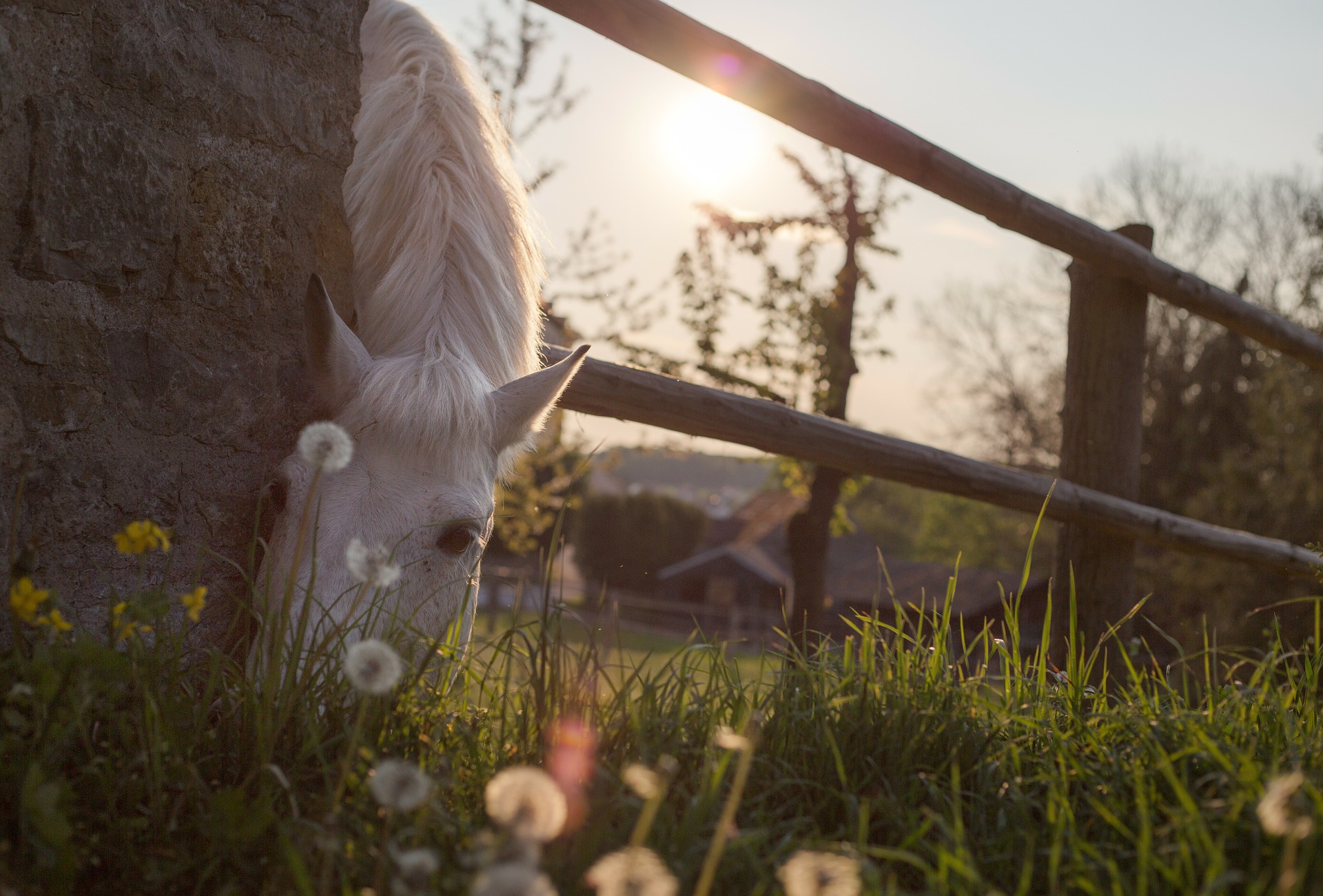
Published 14th June 2018
If you know your horse has a summer allergy, however it manifests itself, cough, head shaking, runny nose, hives, itchy skin etc. the following are a great idea to try to manage the problem before having to resort to drugs such as steroids – which have their own set of risks and side effects. Especially if you can get ahead of the season and in advance of your horse showing signs of the affliction.
1) Keep them hydrated – try to make sure your horse has access to fresh water at all times. Do not put water buckets underneath trees or in high pollen areas.
2) Preparing your horses hay and feed - avoid additional irritation from dust by wetting your horses hay and feed. Also, spraying your horse’s haynet with herbs to help with respiration is also a good idea.
3) Riding times – try to avoid riding on days where the pollen count is particularly high. The majority of us have access to smart phones nowadays with weather apps that will be able to tell us this information. There are also times of the day where the pollen count is lower and therefore your horse will be more comfortable to exercise at these times.
4) Stable management – use bedding that has had dust extracted. Whilst dust won’t cause pollen allergies, it will irritate their already sensitive eyes, nose and skin, so try to avoid dust where possible.
5) Wardrobe – whilst many of the following suggestions are also designed to keep flies at bay, they can also be effective at reducing the amount of pollen that your horse comes into contact with. Whether your horse is grazing or being ridden, the following may provide some relief: Fly/bug/sweet itch rug, fly mask, nose net and ear net.
6) Topical lotions – for those looking for a more natural approach to managing your horses external pollen allergy (whether this being skin abrasions, excessive itching, hair loss, etc), topical liquids such as aloe vera, colloidal silver, camomile and tea tree oil can all be used on their own or mixed with water to work across larger areas.
7) Herbs – such as garlic are a great addition to feed as it’s thought to help expel mucus and cleanse the lungs. If your horses breathing is laboured as an effect of pollen allergies, there are herbs known to maintain a healthy respiratory tract that you can administer as a spray over their haynet, or add to their feed to allow them to breathe in as they chew.
8) Honey – many believe that feeding your horse local honey can help reduce the effects of pollen allergies. It will need to be fed before the pollen levels get too high to help the build up your horses resistance to the pollen.
9) Immune supporting supplements – good immune system support supplements are designed to maintain your horse’s natural immune function. There are several variations on the market with some more comprehensive than others such as EquiFeast's Fight Back.
10) Digestive support – many believe that providing probiotics into your horse’s diet will help to encourage optimum bodily function, there are many digestive supplements on the markets, such as EquiFeast's Ultimate.
11) Paddock management - regularly top fields to avoid pollination of resident plants and if possible, have fields sprayed to stop the growth of native flowers such as buttercups. However, be aware that any treated areas should be fenced off from horses for at least a week or until rainfall.
12) Antihistamine’s – always consult your vet when giving any medication to your horse. As with humans, antihistamines can be an effective way of managing your horse’s pollen allergy. This can however be an expensive option and not always successful.

Need advice? Give one of our advisers a call on 01 44 1453 836974 or email advice@equifeast.net
Related articles
How can you tell if your horse has a low immune system?

